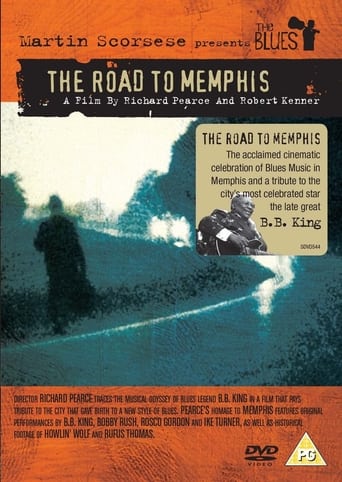runamokprods
While not quite my favorite of the films in "The Blues" series, this portrait of blues great B.B. King, and of the city that spawned so much of the blues, has a host of great performances fun moments (including Bobby Rush and Roscoe Gordon among others), and interesting insights into the changing face of a city. (The difference between the rich reality of Beale street years ago, and the touristy nothing of now is quite sad). While it doesn't have the emotional impact of Wim Wenders "The Soul of a Man" or Scorsese's "Feel Like Going Home", there's still plenty to see and hear for an interested fan.
ccthemovieman-1
I liked this episode because you get a real taste of what it was (and is) like for a musician on tour, traveling thousands of miles on a bus. You get a feel for Memphis, a nice history of Beale Street, and a great feel for what it's like to be a blues artist back in "the old days" and "now" in that city.We get extensive looks at a relatively-unknown Bobby Rush and what he goes through and the little places he plays and then we get the contrasting "king of blues:" B.B. King, and his experiences. King is treated like royalty wherever he goes. It's quite a contrast, although B.B. certainly paid his dues over the years. It's just has Bobby has not stopped paying them. Some make it to stardom; some don't, but once, as Rush says, the blues are in your blood you're not going to stop singing and playing. He's pretty lively for a 60-plus-year-old guy!The scene with Rush and the woman in his act who shakes her booty has to be seen to be believed!We also see quite a bit of another man who is well-known in Memphis but not so much outside of that city: Roscoe Gordon. He came across as a wonderful guy and I felt bad when they mentioned he died shortly after one of the last scenes in the documentary.



